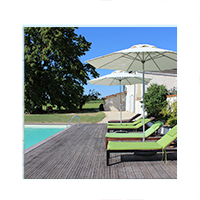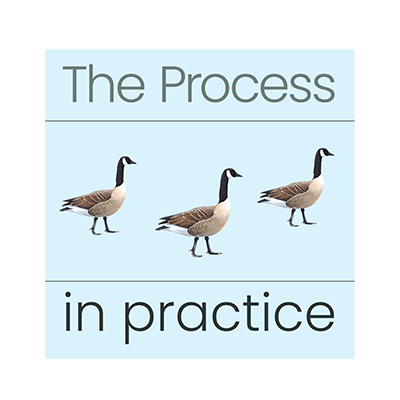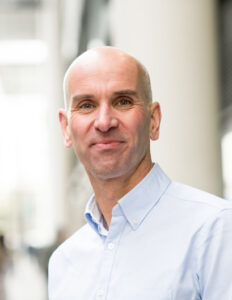 I had a happy childhood growing up in Southampton. Both my parents worked six days a week; mum helped Dad with his business – a marine engineering firm – while doing two other jobs. Neither side of my family ‘came from money’, so I grew up with a strong work ethic and a serious attitude to life, which I understand to be common in first-born children.
I had a happy childhood growing up in Southampton. Both my parents worked six days a week; mum helped Dad with his business – a marine engineering firm – while doing two other jobs. Neither side of my family ‘came from money’, so I grew up with a strong work ethic and a serious attitude to life, which I understand to be common in first-born children.
My father was a child of the 1945 generation, determined to give his children the opportunities he’d never had. This included sending me to a private boy’s school, for which I’m grateful. We didn’t do foreign holidays, so I got to 19 without ever leaving the UK. However, I have happy memories of camping and sailing holidays with my parents and younger brother all around the British Isles – to this day I love the outdoors.
My dad was, and still is, a perfectionist and likes to do things himself. I think this is partly because he likes to challenge himself and partly because he didn’t have the money for the things he wanted growing up, so he made them himself – from boats to motorbikes. The legacy of my father’s perfectionism meant I was always looking to improve. From the age of 19, I was already reading self-development books and always striving to do more.
Although I’ve never been in traditional ‘therapy’, I’ve always used coaching as a means of learning and improving my performance. In 2004, I set up my own consulting, training and coaching business.
In 2016, two un-related people recommended Hoffman. At the time I wasn’t sure why I needed it, but I decided things had to change and my friends told me to ‘trust the Process’. Filling in the pre-course work made me aware that I had periods of feeling down for no apparent reason. I’d withdraw, feel annoyed and get snappy and short with those around me. I also realised that I often experienced self-doubt in my work, which was affecting my confidence and ability to grow my business.
I arrived at the Process full of expectations: I wanted to get clear about my identity and my life vision. I was also keen to be able to speak more openly about my feelings to my family and interrupt the spiral of self-doubt so I could move forward with greater confidence. I did have concerns about what the Process might ‘do to me’. I knew I was lucky to have a loving wife and two beautiful children and there were some things about myself I didn’t want to change or lose.
Happily the Process was an eye-opener. Instead of looking at myself with judgment, I learned to see my behaviour with understanding and compassion. I could see the patterns I’d adopted in order to win parental approval and was able to step away from them and make different choices, with a new awareness of who I wanted to be as my adult self.
When I returned from the Process, one friend commented how healthy I looked. I think it was because my frown lines had gone. I was more relaxed and felt so much lighter. I remember watching a film with my two daughters and laughing from start to finish. I no longer took myself so seriously.
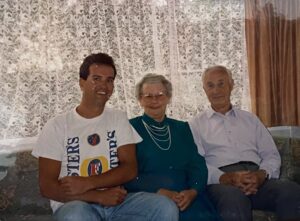 Growing up in an atmosphere where children were ‘seen and not heard’ and being at a boy’s school meant I never learned to share my feelings – especially with women. Since the Process, I’m far more open and emotionally articulate. In my early career, when I worked for Rolls Royce, I was valued for my intellect, but I can see now that my emotional intelligence is just as important, if not more so. I now have a full range of emotional expression and I’m comfortable with being seen to cry. At school, I’d hidden my feelings and focused on being good at things to win approval. Now I no longer mind what others think of me and I open up about my emotions. I strive less and have more fun.
Growing up in an atmosphere where children were ‘seen and not heard’ and being at a boy’s school meant I never learned to share my feelings – especially with women. Since the Process, I’m far more open and emotionally articulate. In my early career, when I worked for Rolls Royce, I was valued for my intellect, but I can see now that my emotional intelligence is just as important, if not more so. I now have a full range of emotional expression and I’m comfortable with being seen to cry. At school, I’d hidden my feelings and focused on being good at things to win approval. Now I no longer mind what others think of me and I open up about my emotions. I strive less and have more fun.
Another feature of my childhood was that I was rarely praised. I can now see why; it was part of pushing me to do better. My parents wanted me to be in a position to have what they never had – and it worked. It was only on visiting my parents recently that I realised my mum had kept all the newspaper clippings and papers and the awards and successes I’d achieved in my younger days. It was quite a thing to read about ‘me’ all these years later, and I’m grateful that mum kept them.
Since Hoffman, I’m choosing to do things differently. I’m more able to see something is good enough instead of procrastinating endlessly, waiting to be perfect before I can take the next step. I aim to offer a lot more praise and appreciation to my wife and daughters. I see us more as a team. I realise my wife too has changed over the years and I needed to accept and acknowledge that. As a family we have conversations that I could never have had with my parents, and we’ll discuss topics that even many of my friends don’t broach with their families.
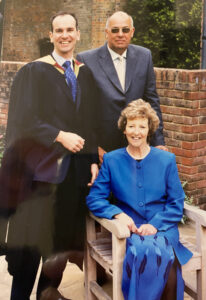 I’m also more aware as a father. For example, I can see my perfectionist pattern in one of my daughters and I’m trying to help her to see that she’s enough. The comparisons on social media, especially around body image, status and material possessions, make it particularly hard for the next generation to feel good enough and lovable just as they are. Even personal development at a young age can sometimes transform into feeling that you’re broken and need to be fixed or encourage you to over-analyse.
I’m also more aware as a father. For example, I can see my perfectionist pattern in one of my daughters and I’m trying to help her to see that she’s enough. The comparisons on social media, especially around body image, status and material possessions, make it particularly hard for the next generation to feel good enough and lovable just as they are. Even personal development at a young age can sometimes transform into feeling that you’re broken and need to be fixed or encourage you to over-analyse.
I feel lucky to have daughters. I see that the world is changing for women. It’s their time to be heard and I want to support my daughters in being all that they can be and to help them be responsible and response-able as they step into their power.
The fact is I was born into a very different world to that of my grandparents and parents, but I still had survival software installed that belonged to another era. Hoffman helped me to upgrade that and now, as a coach, I help clients to do the same. My purpose is always to inspire others and help them to become all that they’re capable of being. I sometimes call myself a ‘software engineer for the mind’.
My advice to my younger self, and anyone else who runs similar perfectionist patterns, is to give yourself a break. We only have one chance at this and we won’t get it perfect – and that’s OK. Just because you saw and did things in the past that brought you down, doesn’t mean that has to define you now. Recognise what you do have and build on it, because you already have a great foundation.
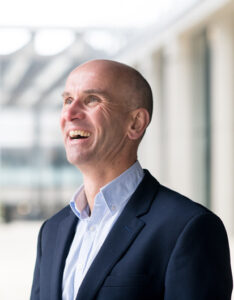 One other gift from the Process was how it helped me to create a vision for my future. I now have a clear picture of how I want my life to be, and I review it regularly.
One other gift from the Process was how it helped me to create a vision for my future. I now have a clear picture of how I want my life to be, and I review it regularly.
Looking again at what I initially wanted from the Process, I can now see that my thoughts then perfectly form my present day affirmations for my life:
‘I’m calm, focused and purposeful. I know what I want to do and have the ability to earn money while also spending time with my family and doing the things that I want to do. I feel confident, and my self-esteem is high. I feel like my life is really on purpose. I have a great relationship with my wife where we share all our feelings openly. My children see me as fun, happy and successful. I know that my relationships are truly authentic and that the people I see as friends are real friends. I am fully able to share and express my emotions. I know why I feel the way I do and know what to do with my feelings. In my work I’m clear about what I’m doing and why I do it and am confident in charging appropriate fees based on the value I believe and know I bring. I work with successful people to help them become even more successful.’
When I look at my life, I realise I do have the power to inspire and motivate others to become who they truly can be. And the person I start with is me.
Thank you to Phil for sharing his story with the Hoffman community. To find out more about Phil’s work as a business coach, visit his website igniumconsult.com or you can connect with him on LinkedIn, here
Phil also talks about Hoffman on his ‘Sparks by Ignium’ podcast series. Listen on Apple podcasts, Spotify, Audible or search ‘Sparks by Ignium’



